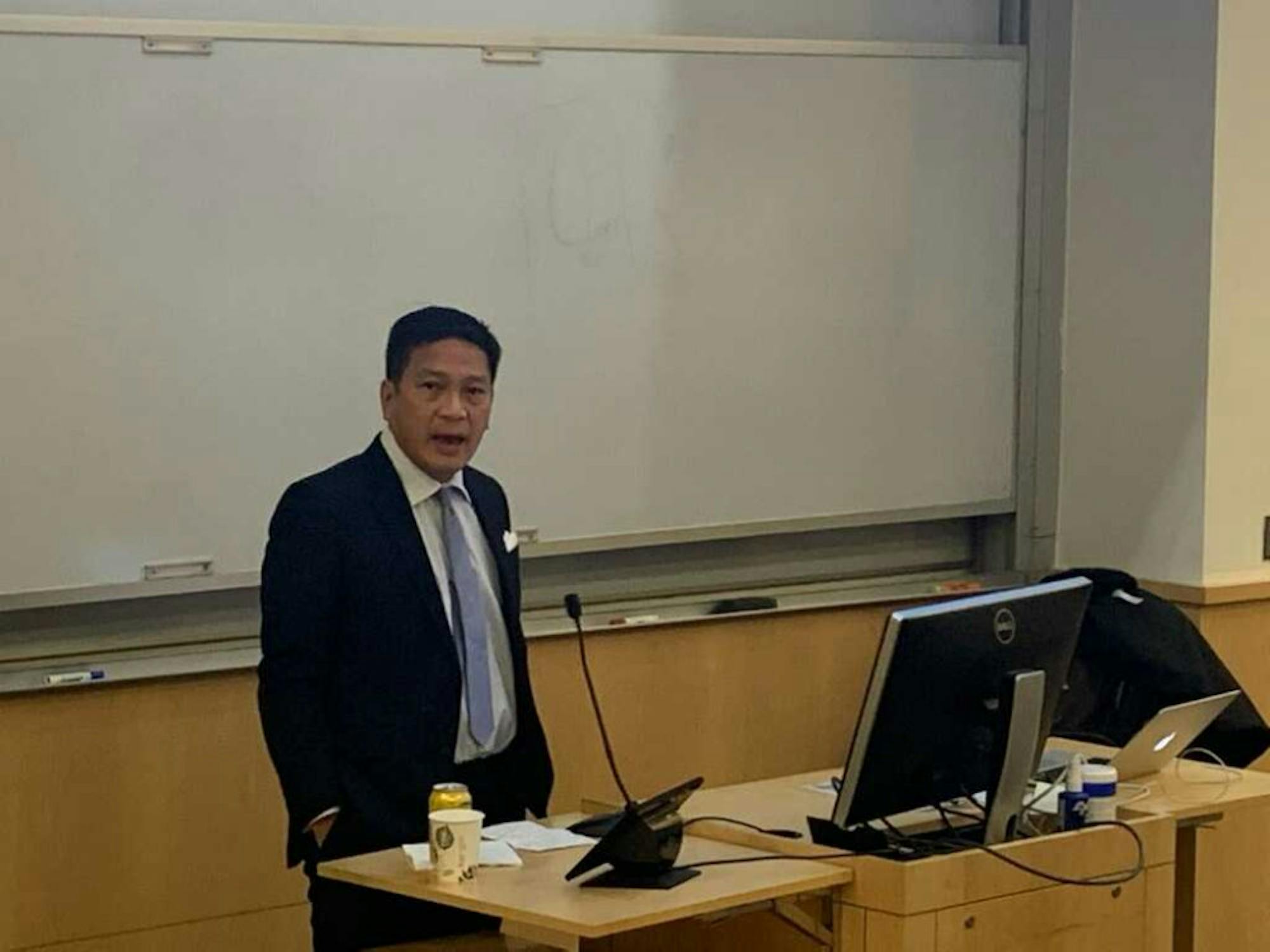Burmese writer and historian Dr. Thant Myint-U discussed his new book, “The Hidden History of Burma: Race, Capitalism, and the Crisis of Democracy in the 21st Century” (2019), with an audience of about 30 people in Mugar 200 last night.
The talk was hosted by the Fletcher School’sCenter for South Asian and Indian Ocean Studies (CSAIOS). Director of CSAIOS Ayesha Jalal introduced Thant Myint-U and noted that he is a former United Nations (UN) peacekeeper who is following in the footsteps of his grandfather U Thant, the third Secretary-General of the UN.
Thant Myint-U said that when he first set out to write his book in 2016, democracy was making good progress in Burma, and he had intended for this book to primarily be a political history. However, the crises in Rakhine and for the Rohingya people began a year later and he realized that writing a history of contemporary Burma would not be so straightforward.
“If I was going to try to write a history of the past 15, 20 years and try to make sense of contemporary Burma ... I would have to delve much more into these issues around identity and nationalism and citizenship and belonging and race and ethnicity,” Thant Myint-U said.
Accordingly, Thant Myint-U structured his talk around five main topics that he identified as crucial in understanding the current situation in Burma: democracy, race and identity, armed and violent conflict, political economy and climate change.
Thant Myint-U walked the audience through a brief history of Burma. He discussed the colonial period in British India, the racial tensions between indigenous and alien people in Burma when it became independent in 1948, the beginning of military rule in 1958 and the eventual rebirth of democracy in the past decade, which included the establishment of a new constitutional framework in 2008.
He talked about the racial tensions that permeate the Burmese psyche which led to the expulsion of large numbers of people of Indian descent in 1964. Thant Myint-U noted that the telecom revolution that began in Burma in 2013 has allowed ideas about race to take on a new dynamic.
“Today on Facebook in Burma, you will see identity-based mobilization on an unprecedented scale,” he said.
Thant Myint-U explained that although the two countries are now rebuilding their relationship, Burma’s close ties with China were negatively affected in the early 2010s.
“The Chinese by 2011 were shocked by the speed with which the rapprochement between the West and Burma took place and the abandon with which the Burmese seemed to be embracing Washington and other Western countries.”
He also spoke about the political economy in Burma, whose “seed money” can be traced to the large illicit heroin industry. Thant Myint-U explained that there are huge sums of money being moved around the country and most of that vast economy is going unaccounted for in official statistics.
“This economy that’s developed in Burma over the past 25 years has produced a society that is far more unequal in terms of wealth than anything we’ve seen at least since colonial times,” he said. “It has devastated the environment.”
Thant Myint-U concluded his talk by posing a question. “What is Burma?” he asked. Given the lack of common identity and the extremely weak state institutions, he wondered how it is possible that the country is still being held together, can support multimillion dollar industries and has not devolved further into violence.
“For me, that’s an important question for which I have no answer."
Thant Myint-U discusses contemporary history of Burma

Burmese writer and historian Thant Myint-U discusses his new book, 'The Hidden History of Burma: Race, Capitalism, and the Crisis of Democracy in the 21st Century' (2019), in Mugar 200 on Nov. 14.





